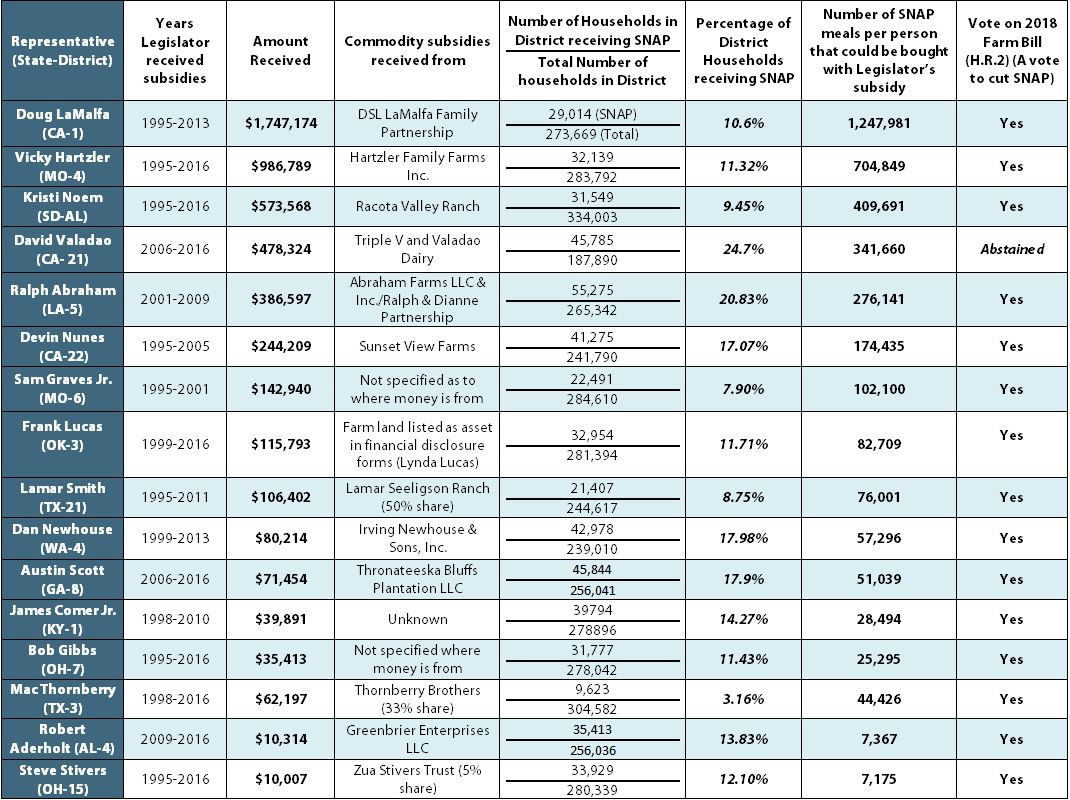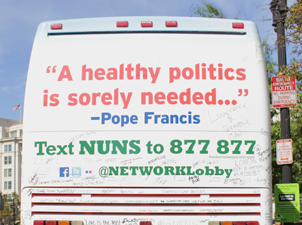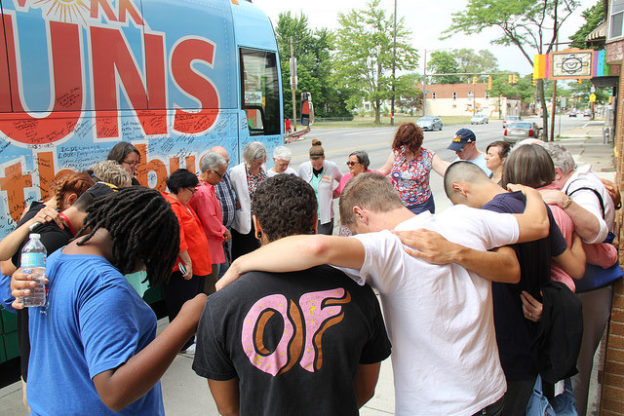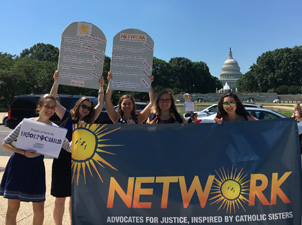
Did You Eat Today?
(Do More Than) Thank a Farm Worker
Erin Sutherland
November 19, 2018
Last month, I had the opportunity to attend an interactive presentation and mindful dinner entitled “A Harvest for Justice,” led by Stoneridge Academy’s Director of Social Action, Lauren Brownlee. Lauren described her recent trip to Washington State to meet with other members of the National Farm Worker Ministry. While learning about the challenges farm workers face in access to housing, adequate health and safety, just wages, and those that specifically impact women, I was both parts equally shocked and horrified.
I was immediately reminded of the striking similarities between the injustices farm workers experience and the issue areas NETWORK has chosen to focus on to “Mend the Gaps” in our society. The gap for farm workers is even wider than that of the general population because of the inability of farm workers to organize collectively, or the fact that citizenship status can deter people from coming forward and reporting abuse. Especially as Thanksgiving approaches, it makes me angry to think about how our national dinner table is supplied by people who are being exploited. All of us, especially those who are dedicated to fixing societal gaps, need to do better to rectify the ways in which we are participating in an unjust food system.
As I reflect on all I have to be thankful this year, the evening left me wondering what more I could do to show my respect for farm workers and be an ethical consumer. Attendees discussed eating mindfully, hosting a documentary watch-party like watching Food Chains, and participating in online campaigns. While these are a great first step, I think it is also important to think more broadly about how to dismantle the unjust, capitalist produce market.
One way is to buy produce directly from farmer-organized initiatives or with ethical certifications. As someone with modest income, I also understand how difficult it can be to pay a little more for ethically sourced produce. One thing I’ve started doing is making sure to keep my food waste to an absolute minimum. This is one way I can show my solidarity with those who worked so hard to pick the food in my fridge by making every effort to consume it all. This means packing leftovers, coming up with creative solutions to using produce that is starting to look iffy, and supporting companies like Hungry Harvest that save perfectly good food from landfills by re-selling produce that couldn’t be sold at the grocery store.
My journey to becoming an ethical consumer and demanding positive change in the produce industry is just beginning. Far from feeling hopeless or overwhelmed, I feel equipped with the knowledge to move my appreciation past words and into action.

















